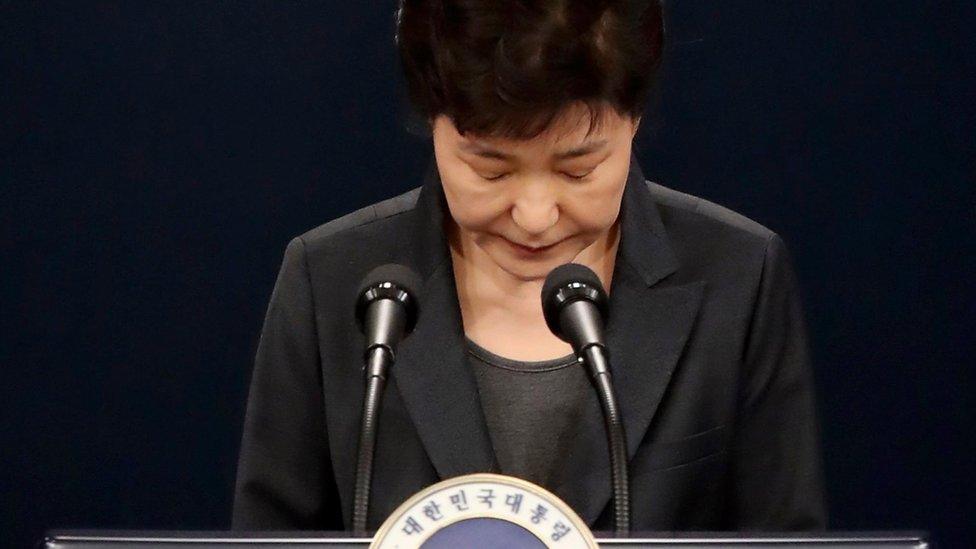South Korea's presidential candidates
- Published
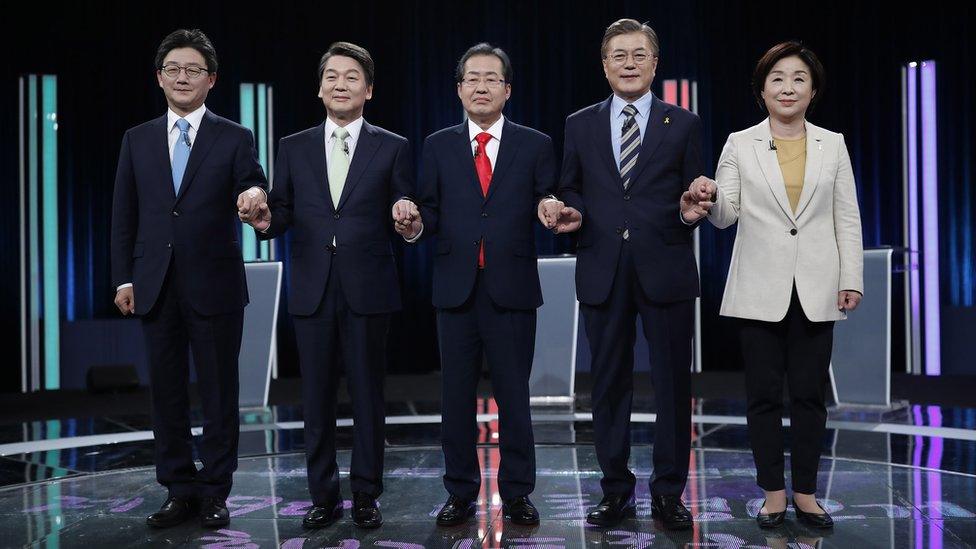
The five leading candidates have have taken part in televised debates ahead of the election
South Koreans will head to the polls on 9 May to choose their next president.
The early election comes after Park Geun-hye became the first South Korean president to be removed from power by impeachment. She is going on trial for charges including bribery, coercion and abuse of power.
The BBC takes a look at the five main candidates, their policies and their chances of victory.
Moon Jae-in
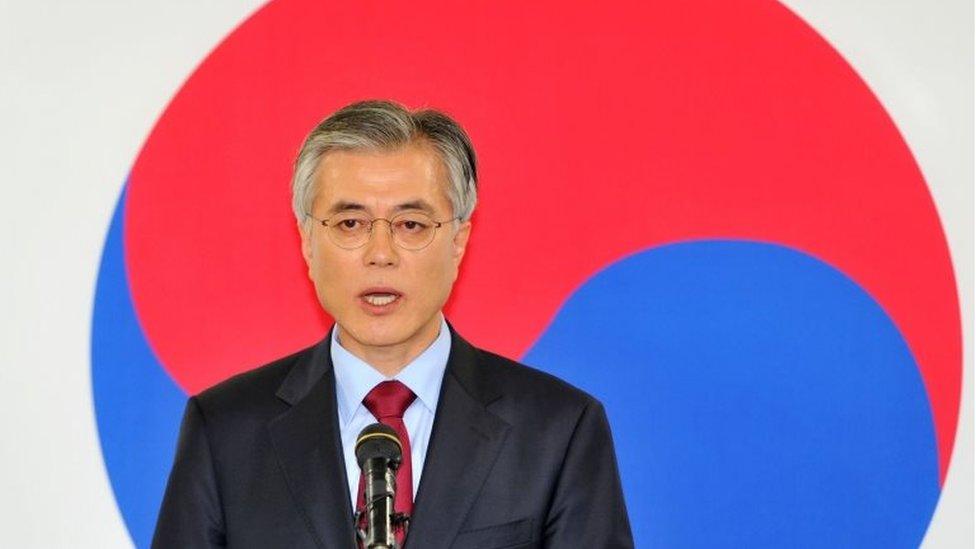
Moon Jae-in, 64, is the frontrunner and seen as the most likely successor to Park Geun-hye. Latest opinion polls predict him getting just over 40% of the vote.
Formerly head of the liberal opposition Democratic Party, Mr Moon ran in 2012 for the presidency but at that time lost to Ms Park. He is now the nominee for the relatively new Democratic Party of Korea.
If elected, Mr Moon has promised to draft an additional budget of more than 10tn won ($8.8bn; £6.9bn) to boost the economy.
Like most of his fellow contestants he stands for a policy on North Korea that focuses on more negotiations rather than aggression. Both he and Ahn Cheol-soo, another candidate, have urged US President Donald Trump to cool his position against Pyongyang and spoken out against any first strike by the United States.
He has suggested that a new approach might be required in handling North Korea with the South taking the lead in negotiations, and has voiced concern about Thaad, the massive US missile defence system being installed in the South.
The MP for the city of Busan was former President Roh Moo-hyun's chief of staff - and was nicknamed "Shadow of Roh".
Most recently though, he has come under fire over allegations that the government of then-President Roh consulted North Korea before abstaining from a United Nations vote on a human rights resolution against the North in 2007.
Mr Moon has denied the allegations.
In the 1970s, as a student activist, he led protests against President Park Chung-hee - Park Geun-hye's father - for which he was imprisoned.
Ahn Cheol-soo
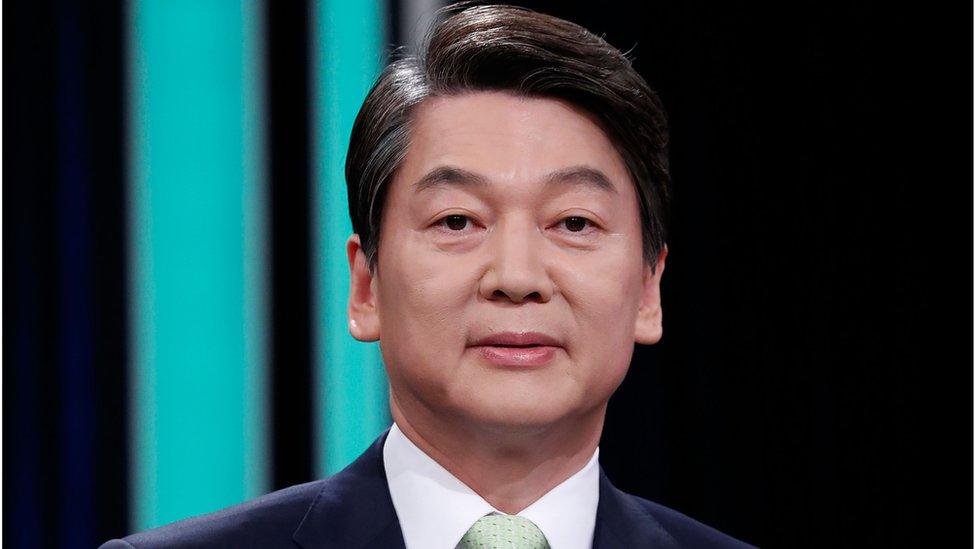
A former medical doctor turned software tycoon Ahn Cheol-so, 55, was long seen as the only serious contender to the frontrunner, constantly polling in second place.
Latest opinion polls though see him tied at just under 20% with conservative Hong Joon-pyo.
Mr Ahn also ran for the job in 2012 but dropped out to endorse Mr Moon and consolidate votes against Park Geun-hye - who went on to win.
He is a member of the National Assembly and co-founded the opposition People's Party but resigned from the chairmanship in June over the party's alleged involvement in a kickback scandal.
As a potential candidate for the 2017 presidential election, he has also been compared to Bernie Sanders for his recommended reforms to education, welfare and economics.
He has said he would strengthen laws to punish white collar criminals, limit pardons for corporate criminals guilty of corruption and bring about more regulations in order to curb the influence of the powerful chaebols (family-run conglomerates).
Mr Ahn said he would seek to restart six-party talks aimed at denuclearising the Korean peninsula.
Hong Joon-pyo
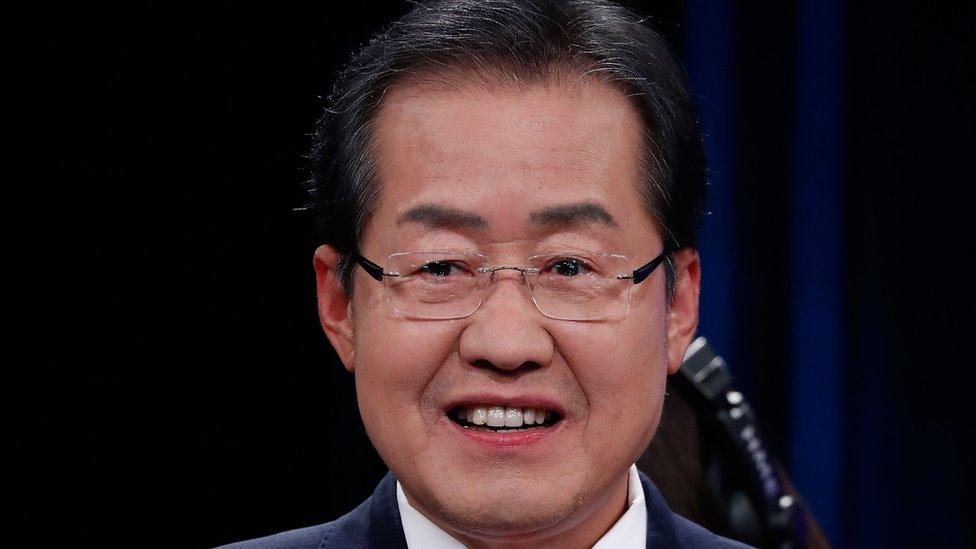
Hong Joon-pyo, 62, is the head of the Liberty Korea Party, one of the two factions to have emerged after the collapse of the conservative party in the wake of the Park scandal.
The Liberty Korea Party is the one loyal to Ms Park.
Recent polls have shown a last minute surge for Mr Hong, level with Ahn Cheol-so. Both are, however, more than 20% behind the front-runner.
Mr Hong has come particularly under fire for his apparent involvement in an attempted rape case. Mr Hong wrote in an essay in 2005 that he provided an aphrodisiac powder to a friend who wanted to rape a fellow student at Seoul's Korea University.
He has repeatedly apologised over the case, saying he feels responsible for not stopping his friend 45 years ago.
He has also drawn ire for recent remarks that "washing dishes is women's work" and that he didn't even know how to cook instant noodles.
"That's the way of nature", he said during an interview. "Men have their own jobs and women have their own jobs."
Yoo Seong-min
The other party to emerge from Ms Park's conservatives is the splinter faction Bareun - in favour of her impeachment - which is fielding Yoo Seong-min, 58, for the presidential race.
Polls expect him to get about 5% of the vote.
Sim Sang-jeung
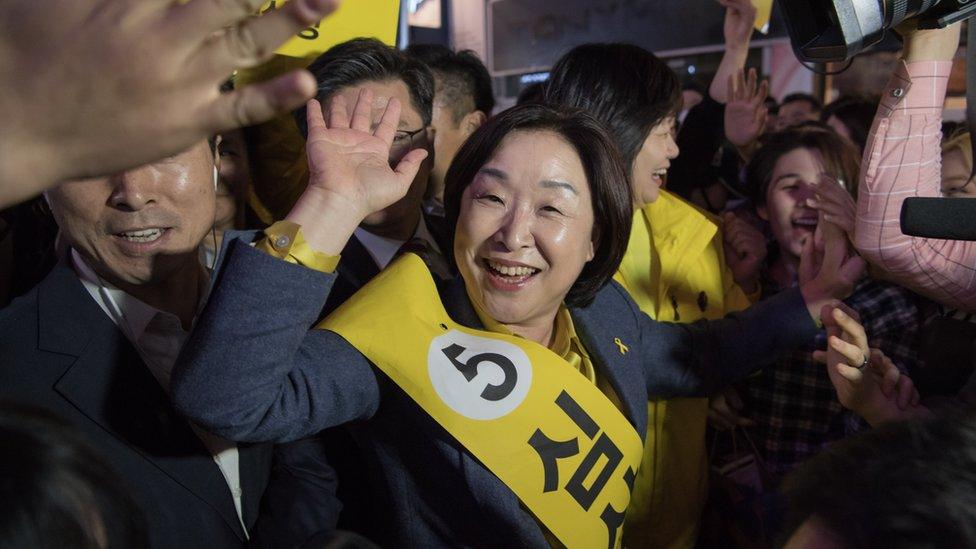
The last of the main parties' contestants is Sim Sang-jeung, 58, currently polling at just over 7%.
As the nominee of the progressive Justice Party, she stands for a leftist agenda, seeking reforms to limit family succession at chaebols.
- Published5 May 2017
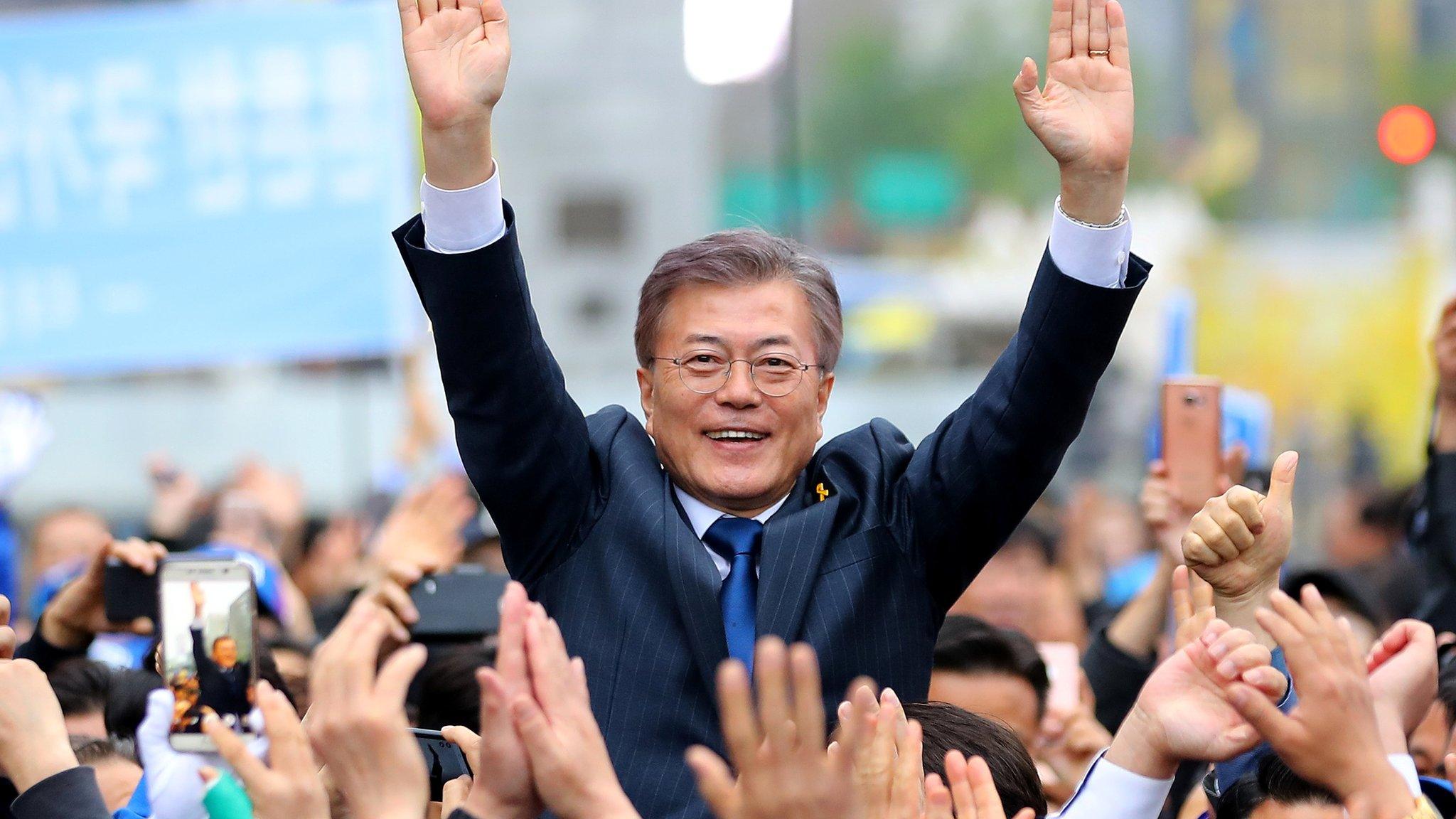
- Published10 March 2017
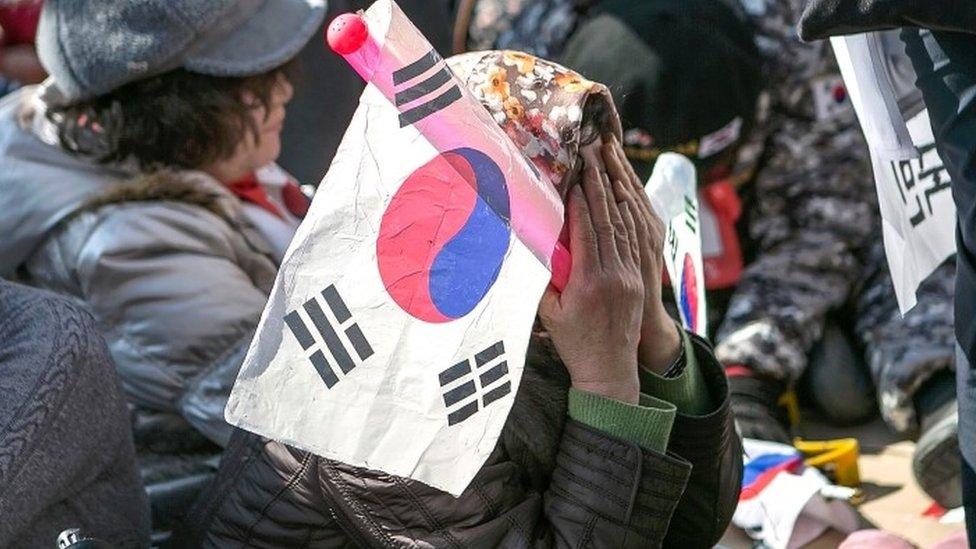
- Published6 April 2018
